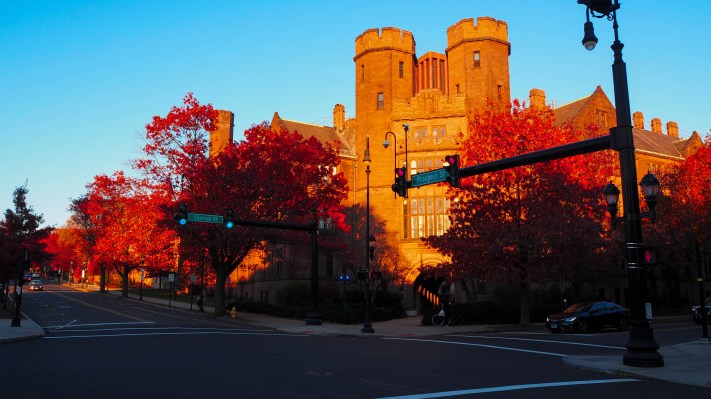Business
VCs and university endowments should partner to make venture more diverse


Matthew Mendelsohn’s accession to become Yale’s new chief investment officer marks a milestone for the rise of university endowments investing in venture capital.
Since joining the Yale Investments Office in 2007, one of Mendelsohn’s core focuses has been venture capital — an asset class that has gained traction among an increasing number of institutional investors in recent years — and Yale’s investment approach has long been a model for other endowments.
But even as endowments increasingly diversify their investments, they’re facing a growing wave of pressure to consider ESG initiatives, many of which may drive the returns they’re looking for in the coming decades.
For instance, students at many universities have been pushing endowment leaders to divest from fossil fuels. Here’s another idea endowments should consider: Invest in educational opportunities to give more people pathways to careers in venture.
In the venture world, far too few internship or fellowship opportunities exist for prospective VC investors to get hands-on experience learning the ins and outs of working in venture. This perpetuates the remarkably closed ecosystem of hiring in VC, where jobs are seldom even posted and warm introductions are practically essential.
Endowments are perfectly positioned to change this. By taking a partnership approach with VCs rather than a more transactional one simply as limited partners, endowments can accomplish several things at once.
They can continue to invest in the funds they think are the best investments; they can support and expand opportunities for those interested in working in venture, especially diverse individuals who may not have connections to VC firms; and they can set themselves up to have close relationships with those eager learners, some of whom may want those endowments to be LPs one day.
In many cases, this could also involve greater collaboration between endowments and career centers at universities, each of which may have existing relationships with VCs, whether on the funding or educational sides.
If endowments partner with VCs on these initiatives, they can help shape the programs to best serve the people in them. Among the internship and fellowship programs that do exist today, many are designed around having interns or fellows be a free (or underpaid) labor force for performing due diligence and scouting startups that VC firms may want to invest in.
While this may not be entirely without value for those participating, programs ought to start with a give-first approach whereby they are intentionally focused on teaching and supporting participants so that they can get broad exposure to the kinds of work VCs do and are able to spend time learning directly from investors.
Existing programs like BLCK VC’s Black Venture Institute, Recast Capital’s Enablement Program and VC Include’s fellowship for first-time fund managers offer great models of effective and inclusive venture education. And a program like the Black Venture Capital Consortium’s summer internship is exciting in the way it’s connecting undergraduate students at HBCUs to VCs for internships, but the kind of full alignment I’ve just described between endowments and VCs has the potential to create even better synergies for participant-first educational programs.
By working as partners on these educational programs, endowments and VCs can also start changing the makeup of venture capital to include investors from a variety of backgrounds. With 93% of venture dollars currently controlled by white men, the need for greater diversity in the industry could not be starker, and endowments committed to expanding the venture ecosystem are in an obvious position to be champions of these efforts.
This kind of partnership is a win-win situation for all involved. By supporting a path to greater diversity in venture, endowments and VCs can help usher in a new era for the industry that sees investors from a much greater variety of backgrounds identifying and backing startups that the old guard might never even come across or consider.
Endowments are well positioned to play such a long game, and the interests of all parties involved in these initiatives could not be better aligned.
-

 Entertainment6 days ago
Entertainment6 days agoWordPress.org’s login page demands you pledge loyalty to pineapple pizza
-

 Entertainment7 days ago
Entertainment7 days agoRules for blocking or going no contact after a breakup
-

 Entertainment6 days ago
Entertainment6 days ago‘Mufasa: The Lion King’ review: Can Barry Jenkins break the Disney machine?
-

 Entertainment5 days ago
Entertainment5 days agoOpenAI’s plan to make ChatGPT the ‘everything app’ has never been more clear
-

 Entertainment4 days ago
Entertainment4 days ago‘The Last Showgirl’ review: Pamela Anderson leads a shattering ensemble as an aging burlesque entertainer
-

 Entertainment5 days ago
Entertainment5 days agoHow to watch NFL Christmas Gameday and Beyoncé halftime
-

 Entertainment4 days ago
Entertainment4 days agoPolyamorous influencer breakups: What happens when hypervisible relationships end
-

 Entertainment3 days ago
Entertainment3 days ago‘The Room Next Door’ review: Tilda Swinton and Julianne Moore are magnificent

















